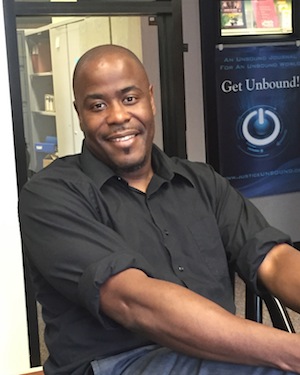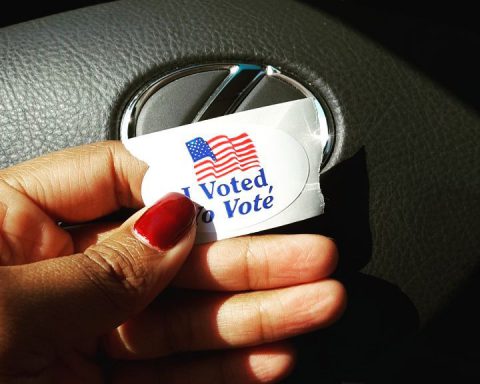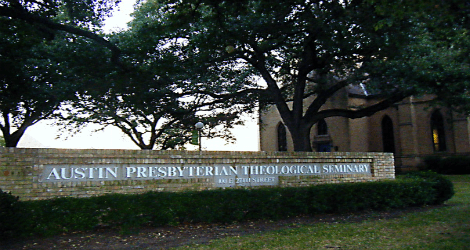The Round Up
The following are summations of the 23 articles contained in this issue.
The Students
There’s little question about it: seminary and divinity school students care about social justice. They are often very articulate and able to think complexly on the subject. Many are engaged with direct ministries that have justice implications. A smaller, but nonetheless sizeable, group of students are engaged in advocacy for systemic change. They are remarkably hopeful: they believe that the church will catch on, eventually. They are skilled at fostering community across both demographic and ideological barriers. They deeply care about people, even those with whom they stridently disagree, and are always ready to offer pastoral care.
Admittedly, seminary students are under great pressure: they have papers to write, families to tend to, churches needing ministry. Many have to get part-time jobs while being full-time students; many are saddled with overwhelming debt. At the same time, they are trying to figure out their faith, discern their call, grapple with previously held convictions drawn into doubt, and also maintain some measure of personal health. So when seminarians say they are busy, that they don’t have time for more conflict, they aren’t kidding. But frankly, I don’t buy “I’m busy” as an excuse for not getting involved in justice ministry. Farmworkers in Southwest, Florida, have found time to organize for justice through the Coalition of Immokalee Workers, and I promise: they are busier and more tired. What motivates the Immokalee Workers is that they have direct vested interest in their justice work. For too many seminarians, like churchgoers in general, justice ministry remains abstracted, disconnected from their personal lives. One student tells of a friend who says, “I’m a woman and I’m trying to get ordained, and that’s my fight, and I’m okay with that… that’s enough.” Now what would happen if we started seeing fair labor practices for farmworkers or same-gender partner housing as our fight?
The Issues
Most students reported an array of justice issues and ministries, including everything from environmental justice to incarceration to peacemaking. Almost ubiquitous was the issue of sexuality, broadly covering LGBTQQI inclusivity, same-gender marriage, ordination standards, housing and bathroom policies, pastoral care, and the cultivation of safe space for diverse sexualities, genders, and viewpoints. Some student bodies are experiencing considerable division, others are not, but all seem to be making this conversation a priority. Many schools are also seeing a coalescing of energy around issues broadly framed under the rubric of gender, race, and class.
See the first pages of this article for an analysis of an emerging emphasis on the “local.”
The Organizing
Current organizing for justice on seminary campuses is as diverse and plentiful as their justice concerns. The Women’s Center of Louisville Presbyterian Theological Seminary, just this year, has organized a performance of The Vagina Monologues, displays of women’s art, lectures, efforts to recognize and end child abuse, and a seminar entitled, “Mending Masculinity, Ending Violence.” At the Claremont School of Theology, students are standing in solidarity with food workers and organizing nonviolent civil disobedience. At Columbia Theological Seminary, the gay-straight alliance, Imago Dei, is mobilizing students, alumni, faculty, and staff to ensure housing for same-gender partners, while also fostering a safe space for conversation among all, including those who disagree. Interdenominational Theological Center students are actively pursuing HIV/AIDS advocacy and ministry in the greater Atlanta area. Latino/a students at Princeton Theological Seminary are working to integrate the Latino/a experience into the school’s curriculum, particularly through the hiring of a Latino/a faculty person. At Union in New York City, the Poverty Initiative carries on the legacy of the Dr. King’s Poor People’s Campaign…
But generally lacking is any concerted effort to organize entire campus communities. Students, who may otherwise experience a strong sense of social unity, tend to fall quickly into their silos or niche issues. Some student organizations have genuinely tried to improve collaboration and to operate more strategically, but these efforts do not usually meet much success. One, at least temporary, exception is in the recent Harvard Divinity School student participation in Occupy, which brought together the environmentalists, the LGBTQ activists, the economic justice advocates, and many others.
The Support
Most, if not all, institutions offer plenty of justice-related academic courses and intentionally integrate alternative perspectives and justice concerns into the general curriculum. Enroll in seminary and you will find classes called African American Hermeneutics, Feminist and Womanist Ethics, Political Economy of Misery, Christianity and Social Power, and Encountering the City. You will also find programs such as Princeton’s Hispanic Theological Initiative and the Gammon Center for the Study of Race and Religion. Multicultural-focused Fuller Theological Seminary offers Korean and Spanish-language schools.
If there is any curricular deficiency, it is an insufficient emphasis on praxis (practical application). Many students said that their professors valued advocacy, but did not go out of their way to encourage students to engage justice outside the classroom. Students identified Field Education (which places students in churches, hospitals, prisons, non-profits, and other internship sites) as the one place they could depend on for integrating theory and action.
The Challenges
Students consistently claim not to have enough time or energy. They are often overwhelmed with classes, field education internships, jobs, families, and other commitments. Other students note that their institutions frankly have different priorities: they might care about social justice, but are more concerned with conflict-avoidance, pleasing Boards of Trustees, maintaining the status-quo, and conducting PR. But it can be difficult just to mobilize students, who often are at seminary simply to take their classes and as one student says, get in and get out. They might be looking for a spiritual retreat from the world, a continuation of their college experience, or a purely academic-focused setting.
In other words, seminarians are divided in how they perceive their theological education. Many, including those who write for this issue, understand seminary as a time for doing ministry right now. Many others, however, understand seminary simply as preparation for ministry. If they do ministry, it is out there, something they do in their field education sites; it is not something they bring back to their campuses. They are not going to devote time to making seminary policies, for instance, more just, because that is just not why they are in seminary.
What They Have to Say to the Church
Seminarians obviously think about the Church a lot. They want to see congregations focus more on local justice action and be more conscious of systemic causes (e.g. not just feed the hungry but ask why people are hungry). Some Presbyterians expressed frustration over the recent decision by some congregations to leave the denomination over Amendment 10-A, which made gay ordination a possibility. They see the church as a family, and family members should not just walk away whenever they do not get their way; we have to stick together, we have to keep talking—because that is what families do. At the same time, many believe that the church must continue to grow in its commitment to inclusivity and embracing the entirety of God’s family. Students almost universally pointed to the need to explore innovative ways of doing church, utilizing social media in particular. Perhaps most importantly, these students said: the church needs to go outside its own walls. Our priority should not be growing membership numbers; our priority should be serving and forming community with the people beyond our institutional walls.






Unbound Social